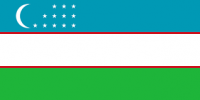Uzbekistan Strikes Multibillion Dollar Deals in Korea, Seeks Mining Help
Rédigé par admin - - aucun commentaire
Shavkat Mirziyoyev’s office said in a statement that the 75 deals covered interests in finance, trade and industry. The contracts in the energy and oil and gas sectors alone amounted to $2.95 billion. Another $1.7 billion were pledged in construction and infrastructure deals, and $2.7 billion in the banking and finance sector.
With multiple trips to Central Asia neighbors, and the requisite state visits to Russia, China and Turkey already completed, South Korea presented an obvious destination. South Korea is a substantial investor — around 461 companies working with Korean capital currently operate in Uzbekistan, and bilateral trade turnover from January to October this year amounted to $1.1 billion.
Uzbekistan is especially eager to exploit Korean expertise in the mining industry. Foreign investors in that area are understandably wary of Uzbekistan in view of the traumatic experiences endured by companies like Oxus Gold.
In 2011, the British miner pulled out of Uzbekistan in the face of mounting harassment from the authorities. In a well-established pattern, Oxus Gold was pressured to yield its assets at below-market prices to elements linked to the Uzbek government. Still, last year, a Paris-based arbitration panel actually decided in favor of Uzbekistan and dismissed claims from Oxus Gold for $1.3 billion in damages for breached mining agreements. Uzbekistan was ordered only to pay $10.3 million in compensation for harm caused by changes to its tax regime.
It was a similar story a few years before with U.S.-based mining company Newmont, which has its development contract cancelled and its assets seized in 2006. The Uzbek government had claimed at the time that Newmont had failed to pay dozens of millions of dollars in taxes.
Regardless of the decisions of arbitration forums, It will take a lot of work for Uzbekistan to repair the damage caused by corruption scandals in this and another sectors.
The Korean investments in mining are modest for now, although there are glimmers of serious ambition nonetheless. The Uzbek president’s press service said earlier this week that Korean companies intend to spend $10 million on prospecting at four sites. The targets of those explorations have not been named.
In June, the government approved a list of 12 gold deposits open for development with “the participation of foreign investment.” Reserves at those sites amount to 14.5 tons of old, according to official estimates. This is relatively small fry given that the estimated size of the country’s overall gold reserves stand at around 2,500 tons. Investors are also being offered the option, as the government phrases it, to assist in developing three uranium mines and eight tungsten mines. According to local media, some 80 percent of the country’s known potential mining sites are lacking in medium- and long-term development programs.
In the mid-2000s, government officials stated their intention for Uzbekistan to go it alone in the operations at two major metals concerns — Almalyk mining and metallurgical complex, or Almalyk GMK, a copper producer, Navoi mining and metallurgical complex, or Navoi GMK, the country’s largest gold producer. But it is clear that outside help is needed. In the past week, Almalyk GMK has agreed on a roadmap for technical cooperation with the Incheon-based Korea Institute for Rare Metals. Whether that will presage any more openings is tantalizing to consider.
Originally published by EurasiaNet.org. Copyright © eurasianet
